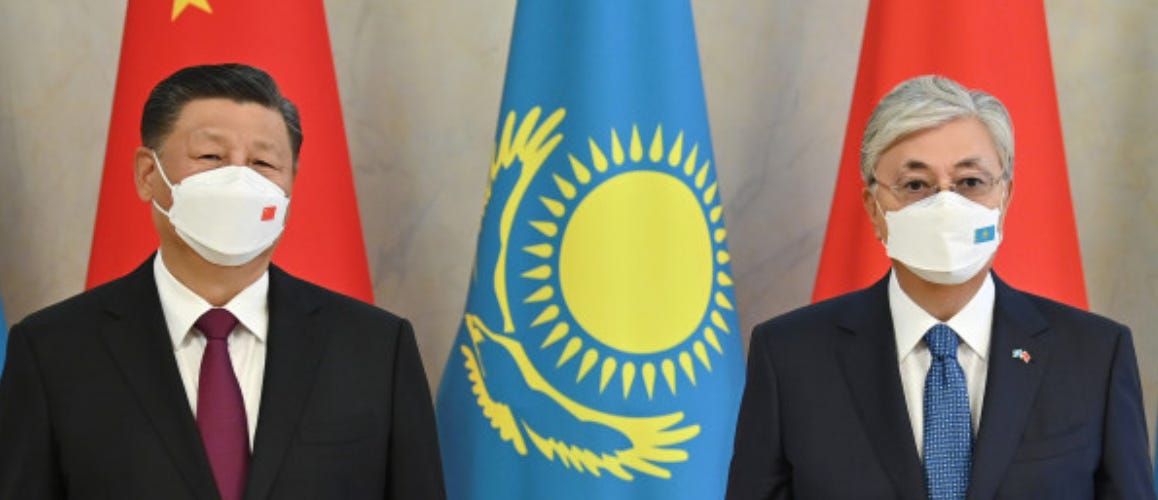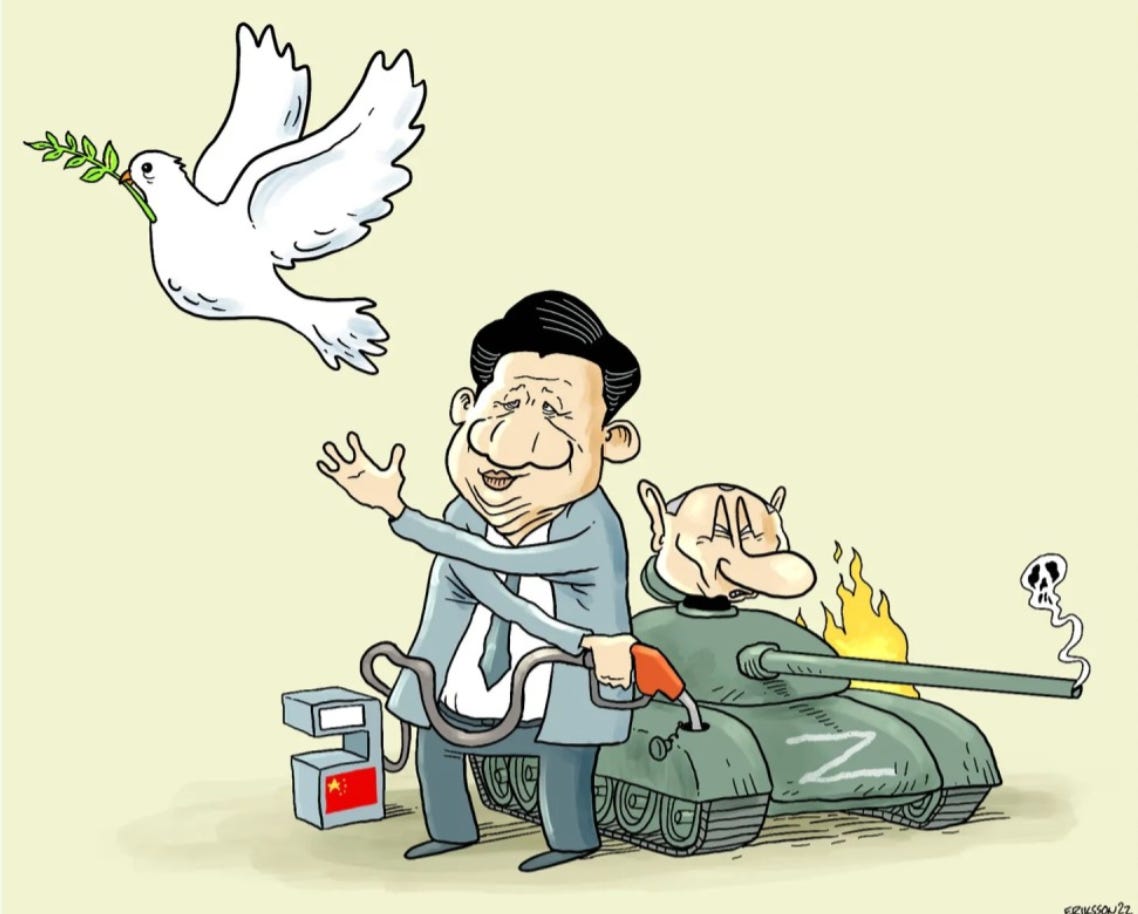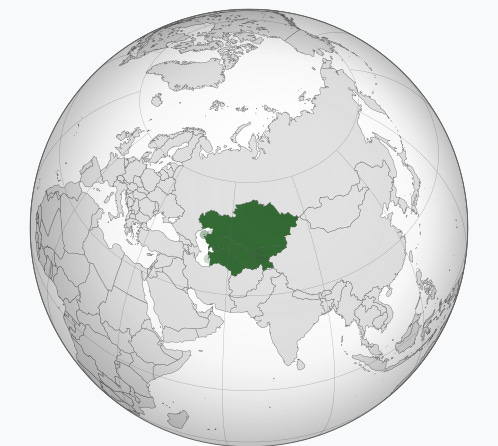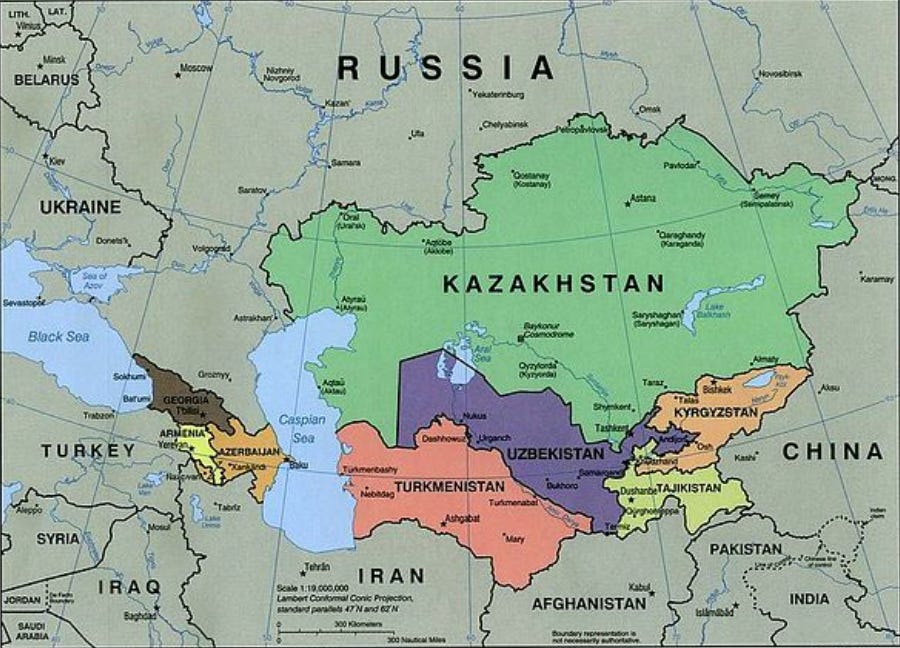Vladimir Putin has suffered a serious military setback in his war in Ukraine in recent days, but China’s Xi Jinping dealt him a second, diplomatic blow on September 13. He “warned” any country against meddling in Kazakhstan, days before the two leaders meet today (September 15) face-to-face. This was meant for Russia because the Kazakhs have been in Putin’s cross hairs since June after their leader openly criticized the war in Ukraine, and then announced that Kazakh oil exports would be diverted to help Europe. Russians blocked the exports, and hinted that Kazakhs may be invaded like Ukraine. But this week Xi waded in by pledging to protect the country from invasion in a private meeting with leaders that was leaked. “We [China] will resolutely support Kazakhstan in the defense of its independence, sovereignty and territorial integrity.” This amounted to a pre-emptive rebuke by Xi, aimed at Putin’s Imperialism. No matter what the two say publicly after their meeting today as to how strong their ties are, China is distancing itself from Putin as his war in Ukraine falters.
Contrary to what Putin would like the world to think, China has never supported his war against Ukraine. On February 4, the two signed a 5,300-word “no limits” partnership agreement that made no mention of the invasion that occurred only 20 days later. Since then, China has kept its distance by deploying duplicitous diplomacy: Beijing refuses to condemn Russia's invasion of Ukraine, or to call it a war, but it also has not praised it, has not abrogated Western sanctions against Russia, nor provided any military aid. China’s priority is to maintain its trading relationships with its biggest customers, Europe and America, and stay close with Russia, if only to tap into its cheap energy. India plays the same game even though it is a democracy and Western ally. Both are participating in naval “war” games in Asia with Russia this week to placate Putin.
The Xi-Putin partnership has been uneasy for some time. China has vied with Russia, since the collapse of the Soviet Union, for hegemony over Central Asia, with its vast resources and growing markets. Beijing has already outsmarted Moscow by spending billions to build railways, highways, and pipelines through Kazakhstan and its Central Asian neighbors aimed at improving their trade — and that bypass Russia completely. Called the Middle Corridor, it’s a multilateral institutional development linking the containerized rail freight transport networks of the People’s Republic of China (PRC) and the European Union through the economies of Central Asia, the Caucasus, Turkey, and Eastern Europe. Besides being the principal “sugar daddy” for the region, China also benefits politically with these regimes as a result of the residual hatred and fear in Central Asia for the region’s former master in Moscow.
Xi’s no-nonsense security guarantee for Kazakhstan was made on the first of a three-day visit to the region. He and Putin are to meet today (September 15) on the sidelines of the Shanghai Cooperation Organization (SCO) — is a security bloc whose members include China, Russia, four Central Asian states, India, Pakistan and eventually Iran. The two leaders’ summit has already drawn much attention and speculation as to what they will discuss and say after the meeting. Best guess is that Putin will spin the meeting as a summit between two superpowers who are joined at the hip, as a comeuppance against the U.S. and the West. Xi, on the other hand, knows the partnership is on a downward trajectory, because Russia’s war is suicidal, so he will keep his cards close to his vest.
Russia is in serious trouble. The Europeans are de-coupling from Russia, more or less permanently, and China’s disassociation began before this week’s no-nonsense Kazakh comment by Xi. For starters, the Chinese snubbed Putin by sending a subordinate to Russia’s recent conference in Vladivostok, suggesting they could meet instead at SOC in an increasingly pro-Chinese region that used by controlled by Russia. Besides that, their meeting is on the sidelines which demotes its importance from being a superpower summit to being a bilateral talk held during a multilateral event. “It [Xi’s unwilling to go to Russia] indicates that Beijing carefully calibrates its level of public support for Moscow”, commented a wry observer.
It's also important to note that both Kazakhstan and Uzbekistan are major energy and mining exporters who have signed on with China to build infrastructure designed to bypass Russia altogether as well as to link their economies to Europe and China. The Uzbeks have also just inked a preferential trade agreement with the European Union and the United Kingdom aimed at doubling exports. Putin, in other words, will be the only leader at SCO who is not doing business with the West or pro-western, except for Iran which is not yet a member of the Organization.
And Xi won’t be pledging his undying support toward Mother Russia to guarantee its security from invasion. The two autocrats will meet, pose for photos, and make a predictable announcement about boosting energy trade and enhancing economic cooperation. This will be for the cameras. The fact is that massive energy trade projects were ballyhooed years ago, and again on February 4, and have little chance of coming to fruition for years, if ever, given sanctions. Behind closed doors, Beijing must shake its head at the stupidity of Putin invading Ukraine and alienating his European customers when he hasn’t a single oil or gas pipelines linking Russia to China. Now Europe decouples from its dependency on Russian oil and gas and signs up other sources, ironically including Kazakhstan and Uzbekistan who will deliver the energy thanks to Chinese-built and Euro-financed pipelines and infrastructure.
Even so, Putin wants his meeting with Xi to demonstrate that he still has a powerful ally, an attempt to play his “China card”. As Alexander Gabuev, with the Carnegie Endowment for International Peace explains this gambit: “How can you isolate Russia, when China stands back to back with it?”
Nice try Vlad, but it won’t work. This summit is about putting lipstick on a pig, for both sides. To downplay expectations, a Putin advisor described China’s position on the war as a “well-balanced approach to the Ukrainian crisis”. He then added that the two will “thoroughly” discuss both the war and more economic cooperation, a jolly good idea given that Chinese investments in Russia dropped 100 percent this year. “Putin is desperate for more assistance from China. I don’t think, though, that Xi will be as supportive as Putin would like,” commented Mark Katz, a Russia expert at George Mason University.

As for Xi, his main objective in Central Asia is to solidify his relations with all the countries there, and to meet with Putin but continue distancing from his “faltering war”, according to China experts. Beijing has never endorsed territorial grabs (other than on its own periphery) and never recognized Putin’s 2014 annexation of Crimea either, for example.
Meanwhile, Ukraine has recaptured territory the size of the State of Maine in a matter of days due to American firepower, cunning strategy, and Russia incompetence. Dissension bubbles up in Russia, but Putin remains unbowed and delusional. “I’m sure that we’ve lost nothing and won’t lose anything,” Putin crowed at his recent Eastern Economic Forum in Vladivostok. When asked by a moderator about the conflict after his speech, he said “the main thing we’ll gain is strengthening our sovereignty.”
But this war is suicide for Russia. Not only will its weakening condition lead to internal secessionist and revolutionary movements, but there’s not a nation on earth that will rush to its defense, particularly its “no limits” partner China. After all, Beijing has already placed limits on its economic interaction with war torn Russia. Even Russian Foreign Minister Sergey Lavrov admitted that his country was living through a period when it had nobody to rely on but itself. And with every military setback in Ukraine, Beijing will retreat even further away from the Kremlin if it’s smart. And it is.
However, should the Kremlin capitulate or fall into a heap, China will simply lie in wait then gradually take over chunks of Siberia or snap up breakaway regions that want Chinese funds to build railways, highways, or pipelines so that their people can connect with Europe and with Western prosperity.
And Russia won’t be missed by anyone, ally or foe. It will be atomized.






Your analysis is well done.
Ukraine needs to control the sky. Ukraine desperately needs anti-Missiles weapons to stop the shelling and bombing by the Russians and western airplanes like the F16 and the A10 to drive out the Russians and retake the lost territory. I hope the Russians depose Putin soon. Glory to Ukraine and its Heroes!!
Nice to see Russia flounder.